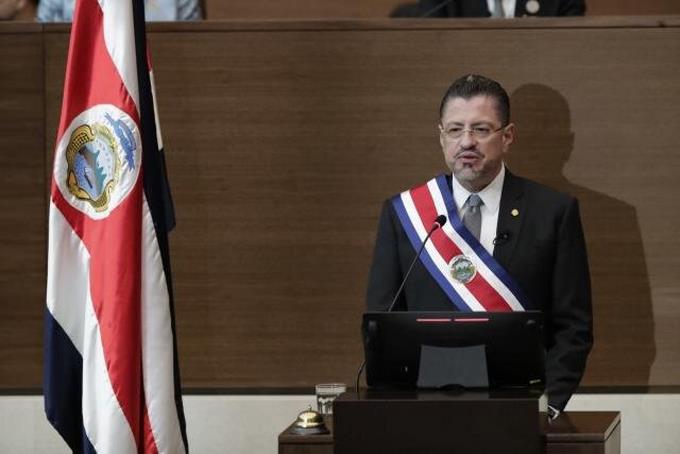The intention to sell state assets to pay debt, announced by the president of Costa Rica, Rodrigo Chaves, generated surprise in the Central American country and opened a controversy between the government and the unions that oppose the initiative.
Last Tuesday, President Chaves said during the presentation of his 100-day report that he will present bills to sell the International Bank of Costa Rica (Bicsa) and the Bank of Costa Rica (BCR), as well as 49% of the actions of the state-owned National Insurance Institute (INS).
"A key action is the sale of assets such as Bicsa and the BCR, which will give us fresh resources of approximately 2.8% of GDP, which we will use to reduce debt. Soon we will present to Congress a bill to that effect"Chavez said.
The president added that the INS "is one of the strongest state-owned companies, and it will also contribute to this fight, with the opening of 49% of its shares so that the country’s pension funds can invest in them".
According to Chaves, from the right-wing Social Democratic Progress Party, the sale of 49% of the INS can give the government 593,000 million colones, equivalent to about 870 million dollars (1.2% of GDP).
Costa Rica and the International Monetary Fund (IMF) agreed at the beginning of 2021 on financing for 1,778 million dollars disbursable in installments until 2024, before which the Costa Rican Government promised to meet goals such as eliminating the primary deficit in 2023 and lowering the debt to 50% of GDP in 2035, through a series of laws and reforms that do not include the sale of assets.
Costa Rica’s debt is around 70% of GDP.
In 2021, the INS, which is in a competitive market with private companies, reported a net profit of around 200 million dollars, while the BCR, one of the three public banks in the country, recorded profits of about 80 millions of dollars.
THE UNION REJECTION
Albino Vargas, general secretary of the National Association of Public Employees (ANEP), the country’s main union, said Thursday that what the government should do is attack tax evasion and renegotiate debt instead of promoting the sale of assets.
"You can never face the serious problem of debt with the sale of assets. We categorically reject, from any point of view, these ideas that are not new. With this level of public debt and a brutal interest payment, the fundamental step is to renegotiate the obscene interest payment and hit hard at tax evasion and tax theft"he expressed.
The deputy general secretary of ANEP, Walter Quesada, announced that the union will be "on the front line of the fight" because they are not going to accept “that State institutions be sold to pay debt".
"We are not going to accept that the public institutions, guarantor of equality in this country, are going to sell it to deliver it to the same companies and rich people as always"said.
The Bank of Costa Rica, founded 145 years ago, published a statement in which it asked its workers and clients "continue trusting the entity" and demanded from the authorities a "in-depth analysis of the scope of the possible sale, as well as the real impact that the measure would have on the country’s socioeconomic development".
The Union of Employees of the BCR also qualified as "populist" the idea of selling assets and announced that his "line of defense will be to be against this and any other proposal that implies the sale of BCR".
Opposition political parties also expressed their doubts about the sale of assets, considering that they would contribute very little to debt reduction.
The Government has not yet published the bills or submitted them to Congress.
